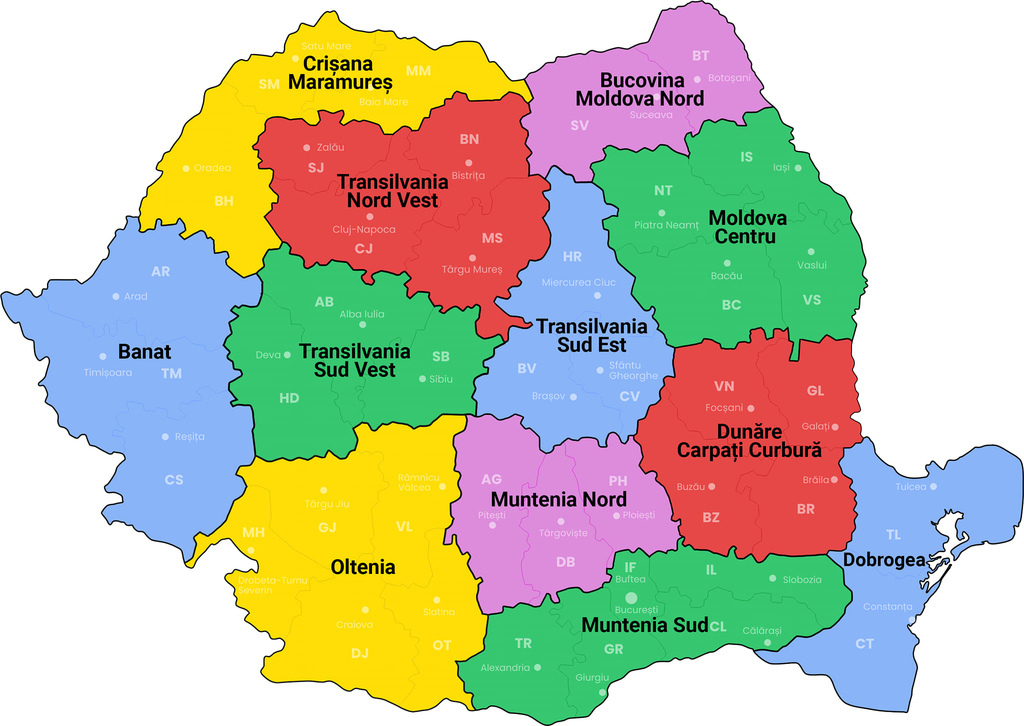New Romanian proposal would split Szeklerland in two

Change language:
Romania is currently contemplating significant administrative reforms that could reshape the country’s county structure. The Romanian proposal, pushed by business and academia, seeks to reduce the existing 41 counties to just 15, excluding Bucharest.
Support for reform and political realities
According to Index, the basis for reorganisation would be the population of small towns and cities, with a suggestion that municipalities should have a population of at least 5,000 and cities at least 10,000. Proponents argue that such a restructuring would enhance the efficiency of Romania’s administrative machinery. Bogdan Daniel Vișan, president of the Romanian Chamber of Commerce and Industry, supports the idea, emphasising the need to define population thresholds for municipalities and cities. Additionally, Romania’s social-democratic prime minister, Marcel Ciolacu, acknowledges the necessity of administrative reform but cautions that it cannot be achieved overnight. He specifies that any reorganisation would not take place before the 2024 parliamentary elections.
Transylvanian counties: a controversial aspect
While the proposal respects historical borders in Romania, concerns arise regarding its impact on cultural, demographic and historical aspects, particularly in Transylvania. Szeklerland, with a 38% Hungarian population in Mures county, faces division, raising questions about autonomy. In a particularly problematic move, Harghita and Covasna, with 85% and 74% Hungarian populations respectively, would be merged with Brasov. This not only eliminates any prospect of autonomy but also dilutes the Hungarian majority in the resulting county to 43%, a significant shift from the current demographics.







The ones who undermine the most the interests of the szekeli ethnical minority are both the local magyar parties and Orban government who fuel these people nationalistic fairytales and keep them unintegrated in their home countries which leads them to grapple with poverty.
Hmmm Orban doesn’t recognize Slovak or Romanian borders…. those countries respond in ways that don’t help the Hungarian minorities there…..
Who could have possibly predicted that?
Romania has the right to act as they please. It is their territory.
Look at these three Romanians getting triggered that their gov’s obvious ploys are getting exposed.
Romania took a biiiiiiiig bite of Hungary after 1920. Now it must grapple with the indigestion.
“Romania has the right to act as they please. It is their territory.”
What moral or legal rights do majority populations have to oppress or otherwise abuse minority populations? People use this word ‘right’ when it suits their argument, but it is a word with, depending on context, either a strict legal definition, or a great moral weight.
I hear time and time again Romania discussed by Romanians and others without regard to the inherent diversity of the population. Despite the best efforts of the worst dictator of the latter communist era, there remain four large minority populations and several smaller in Romania. Rearranging the electoral districts in ways that limit the political power of those groups is not surprising, given the history. It isn’t permitted by some inherent ‘right’, but merely by the rules.
Perhaps Mario has been to Romania, perhaps not. If you travel to and visit the traditional Sekler lands, you’ll soon see that despite the Romanian police and the mandated advertising in Romanian, this is a place built by and for
and populated by Hungarians.
Minority rights are always difficult to navigate, but they are especially so when they are within lands that were arbitrarily taken from one country and given to another by third parties with no knowledge of the places or stake in their destinies.